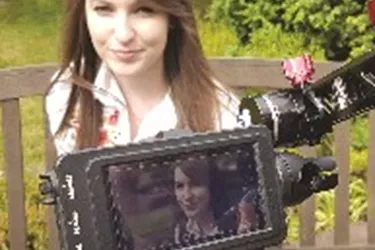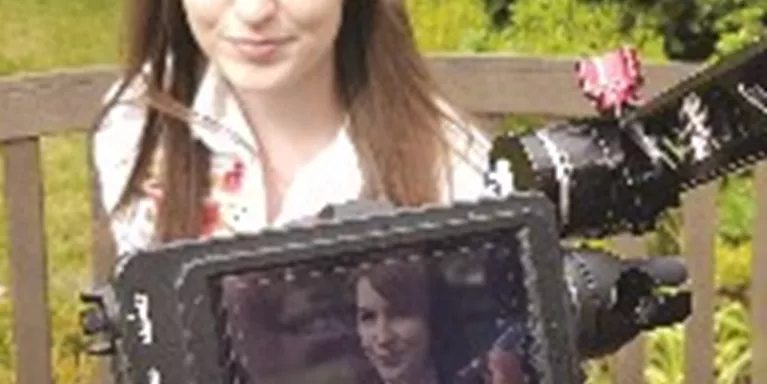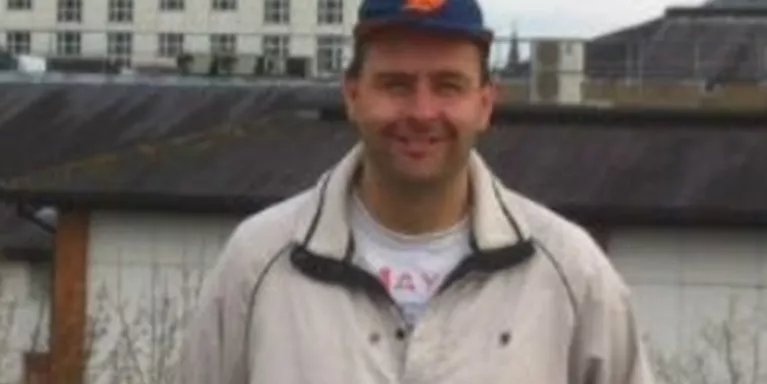VR therapy and me
How a ‘game’ changed the face of my anxiety condition.
Not many people enjoy the London Underground. Delays, busy carriages and dark tunnels aren’t exactly inviting. But in 2013, a few minutes stuck on a broken-down tube triggered a whirlwind of anxiety attacks. I didn’t just dislike the tube, I actively avoided it. My irrational, paralysing fear soon spread and to other forms of transport, lifts, and even some buildings. My phobia hadn’t just taken over my mind, but my life.
Cleithrophobia is the technical term for the fear of being trapped, and as of a few months ago, I hadn’t faced my fear for three years. But that was all about to change.
Exploring new therapies
A new BBC Three documentary exploring the relationship between humans and tech gave me the chance to try a new treatment – virtual reality therapy. It would mean facing my fear head on and immersing myself in the world that sparked my extreme phobia.
Michael Carthy is Europe’s first therapist to use this technique and I soon
found it was way more complex than just a ‘game’. The software builds a virtual version of your fear, whether it’s planes, heights, or even public speaking. Michael was going to place me in the tube simulation and provide support using elements of CBT. Sensors attached to my fingers would measure my skin’s moisture level, giving a direct indication of my anxiety during the encounter.
Part of me was expecting an elaborate simulator so I was surprised when he
handed me a Samsung phone, GearVR headset and some headphones. You could buy it all on the high street!
People have asked me: ‘is the fact that it’s not real in the back of your
mind?’ I was worried about this too, but once you’re in, it’s strangely
tangible. Walking through the long tunnels to the platform builds suspense and anxiety like a normal journey through the real underground would.
Inside the ‘game’
Suddenly a train arrived and I was on it. I knew my anxiety levels would be
going through the roof on the chart and it was about to get worse. The train
stopped, the lights went off and an announcement told us we’d be held there momentarily. The vague language made me panic. How long is a ‘moment’?
My mind started drawing clear comparisons between the game and the incident on the jubilee line all those years ago. I started to freak out but Michael guided me through, helping me to breathe and rationalise the situation. Before I knew it I’d been in there for five minutes and had calmed down so much that my anxiety level was almost normal.
I remember taking the headset off and starting to cry. I’d made it! It was a
true breakthrough.
Looking to the future
The documentary has made me consider the effect technology could have on mental health treatment. With tech advancing quicker than ever before, and the cost of devices dropping as quickly as they are outdated, can we really treat people using our smartphones?
Presenter, James Young, also chats to two developers who say their app, x2AI, uses therapy ‘bots’ to discuss your feelings. They claim people are more likely to open up to a machine than a human being. What a concept…
Michael was a huge part of my treatment so maybe we’re not ready to ditch the human therapist completely – but what if some of the burden could be lifted by this technology? I’d love to see further research answer these questions, particularly after my experience with virtual reality.
Minutes after my first therapy session I got in a lift. On my third session,
Michael got me on a tube. Since then I have conquered the Underground alone and got in more lifts than I can remember. I’m still working at it – it’s not a miracle cure but I’m shocked at how quickly it has improved my condition.
We may be a few years away from prescribing VR headsets on the NHS but with further investment and research maybe more of us can use game-like worlds to change our irrational, emotional responses to the real one.


Information and support
When you’re living with a mental health problem, or supporting someone who is, having access to the right information - about a condition, treatment options, or practical issues - is vital. Visit our information pages to find out more.
Share your story with others
Blogs and stories can show that people with mental health problems are cared about, understood and listened to. We can use it to challenge the status quo and change attitudes.

















